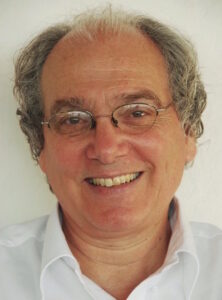by Rich Panico
Emotions are the motive force of the mind. They get the vrittis spinning and turn samskara from building material into a destiny. In current psychological parlance, successful regulation of emotions correlates with virtuosity in relationship, career, and individual existential satisfaction. Emotional regulation protects individuals from the acquired aspect of mental illness and is important in the treatment of established depression and anxiety disorders.
When mindfulness is added to contemporary psychological efforts to address emotional regulation, “possibility” arises as an inherent property of mindfulness practice. Possibility is of course the antidote to “stuckness” and on the street is known as freedom. Freedom and its hard earned acquisition, as Richie Havens tried to tell us, has in turn side effects that you just have to learn to put up with: joyfulness, resilience, trust in self, exploratory behavior, gratefulness, whole-hearted engagement, creativity, and so on.
Regulation of emotions is a fairly simple affair but…(I know you saw this coming) it is not easy. It involves understanding and cultivating a set of skills, a willingness to “look under the hood,” and the discipline to develop a practice.
The Yoga Sutra suggests that Yoga (and mindfulness meditation) is in fact a process of seeing, stilling, and disidentifying on multiple levels of experience, allowing the mud and confusion to settle so that “seeing” becomes clear, and action and inaction become a wise and skillful choice based on that clarity. Add a little intention and you have a life worth living, a durable vehicle to cross the sea of existence, working skillfully with the weather and currents that may arise and — this is important — have navigational skills and a sense of where you’re going.
My goal in offering this class is to have fun. The path to liberation can get serious, heavy and even grim. This path is too important to take seriously. We will discover that accessing emotions from a psychological perspective involves play as well as reaccessing and amending developmental entanglements with emotion. Some level of childlike delight becomes one of the more helpful attainments necessary to pull this off. It’s hard to develop delight without some level of fun.
Please join us for a free introductory talk followed by a four-week class on meditation for emotional regulation. See HERE for details.

Rich Panico is an artist, yogi and physician known for his humor and clarity in teaching. He has practiced meditation and yoga since 1970 and began teaching mindfulness woven into pottery making classes in the late 70’s. He he has taught mindfulness formally, in medical, academic and art related settings for over 20 years.


I would like to register for next week’s presentation and for the course. Could you send the ‘path’ to how I might do that? Thanks. Karen Kassinger